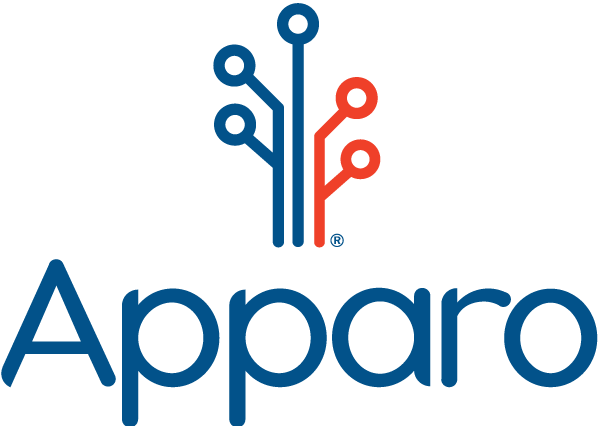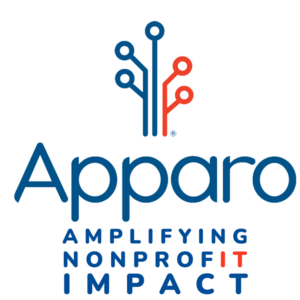Volunteers from Primerica worked with Rainbow Village to assess their processes, identify areas in need of remediation and deliver achievable recommendations for improvement, so that the organization can grow to meet the needs of twice as many homeless families. This work is especially critical, since currently only 10% of demand for transitional housing for homeless families can currently be met in Gwinnett County.
Rainbow Village is an Atlanta nonprofit with the mission of transforming the lives of families experiencing homelessness by providing help, hope, housing and healing in order to instill initiative, self-development and accountability that will foster meaningful growth in the lives of all who their organization.
Rainbow Village leadership reached out to Apparo for support to improve their business processes. Apparo matched them to a volunteer team from Primerica who documented current processes across their organization, identified pain points and provided prioritized recommendations for improvement.
After the project, we met with Melanie Conner, CEO of Rainbow Village, to learn about its significance and expected impact. She shared, “When I came into my role, I immediately noticed that we had room for improvement and streamlining of many of our processes. However, like a lot of nonprofits, we were so busy doing the work that we couldn’t put it aside and take the time to think through whether there were better ways to do our work. It felt overwhelming to address and easier to just keep doing things the way we were doing them.
“But we are trying to grow and scale our programming. We’re embarking on a capital campaign which will allow us to build more housing so that we can serve double the number of families. We can’t do that without improving our processes, so that we have the time to manage and serve these families in the right way. I knew we needed a fresh set of eyes and so I was very excited to begin our Apparo project.”
Melanie shared and overview of key process pain points this project worked to address:
- Duplicative effort and wasted time, which should be spent providing service and support to residents
- Missing documentation of processes – some staff not even realizing they are doing the same work as others
- Lack of integration of accounts systems – requiring input data in two places (QuickBooks and Salesforce)
- Manual, time-consuming process for scheduling appointments – “Our coaches were literally standing in the hallway with one person on the phone with a mental health counselor and an other person on the phone with a financial counselor, asking each other, ‘Can you do it on Tuesday, no, how about Thursday…’”
- Manual, time consuming, paper-based processes
- Data on each resident kept in notebooks, limiting visibility on their progress through the program
- Gather data for reporting requiring hours of searching through this paper documentation – “Our program team is working with an encyclopedia of papers on each resident and every time we need data for a grant, they have to manually comb through notebooks for hours to find the right information”
She is enthusiastic about the documentation of processes and also key process improvement recommendations, such as:
- Use of Calendly for scheduling appointments
- Use of Google Docs for tracking client data and information in the short term and then transition to Salesforce in the longer term
- Optimized use of Salesforce, including integration with Quickbooks
As a result of the process improvements recommended in this work, Melanie anticipates very powerful improvement to the way Rainbow Village works and supports the homeless community:
- 600 hours of saved time making appointments, running reports and searching for files/data
- Scheduling appointments – will save approximately 20 hours per month (240 hours annually)
- Gathering data for reports – will save approximately 30 hours per month (360 hours annually)
- Increased job satisfaction for staff who can spend their time serving people, not searching for data
- Improved data for business decision making and increased fundraising
- Improved ability to forecast
- Improved ability to determine if they meet grant qualifications
- Increased revenue – As Melanie shares, “I can tell the heartstrings part of the story to a funder, but what’s challenging is to be able to say quantitatively, that this is how we improve lives, this is our success rate. Telling the story better is what gets us more money.”
- Mitigation of risk and increased data security
- Minimized changes of human error when using paper for tracking
- Increased security relative to a paper based system
Importantly, as a result of these improvements, Melanie anticipates being able to deepen and broaden their organization impact.
Freed of slow, paper based systems and organizational redundancies, staff will have more time to spend with their clients. New tracking systems will also provide them with a deeper understanding of their clients’ progress through the program. As a result, all Rainbow Village clients will receive better support than ever before, helping speed their transition out of homelessness. Rainbow Village will also be well positioned for growth. They will have the time and data to raise funds needed to build their new facility and will have efficient processes in place, so that they can successfully house and serve twice as many homeless families, putting them on the path the self-sufficiency and success.
Is summary, Melanie shares, “I’ve worked on similar types of projects with other professional teams, and Apparo has been more consistent with the quality of service that you’re providing and your communication through the process. I always knew what was supposed to be happening and what to expect. It makes a big difference that it’s not just me saying that we need to do things differently. It’s powerful to have other people come in and share advice on how we can do it differently.
“Working with Apparo and the Primerica team was a fantastic process. Both teams were professional and seemed sincerely interested in the work that we do. I have no doubt that the information that they shared and suggestions that they made will allow us to significantly improve our processes and streamline our work so that we can serve more families.”
Primerica volunteers also shared their words of appreciation:


